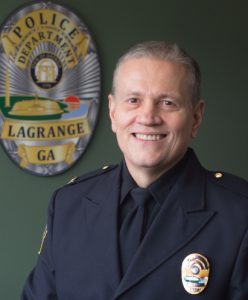
As many of us are well aware, leaders in law enforcement wear many hats. We are social workers, public information officers, teachers, accountants, personnel managers, and more—and often all of these at the same time. We are responsible for helping our communities thrive while serving as strong leaders for the officers who work under our purview.
There is a paradox in policing: the oath we have taken to protect and serve, though unyielding and finite, inherently involves the willingness to be malleable and the ability to evolve the profession as well as ourselves.
The confluence of the police oath and the factors influencing its evolution require accountability beyond that of most professions and contributes significantly to the importance and honor of the work. In fact, the challenges we face as leaders of law enforcement organizations require us to balance varying pressures and perspectives, while maintaining the support of our personnel and the trust of the community. There is often very little margin for error, and, during difficult times, seemingly insignificant issues can become the subjects of intense criticism.
Police accountability has long been a focus of the IACP, as it is a challenge for the field that goes back generations, and we have repeatedly heard this theme arise during the TRUST Initiative listening sessions conducted this summer. Accountability in law enforcement encompasses public concerns about racial profiling, excessive use of force, deliberate violations of sanctioned evidence handling procedures, and corruption, which all create or exacerbate mistrust in a community. When police officers with substantiated misconduct are not properly disciplined, an agency’s relationship with its community is further fragmented.
Given these challenges, in 1979, the International Association of Chiefs of Police (IACP), in conjunction with the National Sheriffs’ Association, the Police Executive Research Forum (PERF), and the National Organization of Black Law Enforcement Executives (NOBLE), launched an initiative that would develop and propagate common standards within the law enforcement profession. This effort resulted in the development of CALEA—the Commission for Accreditation for Law Enforcement Agencies—which has been a mainstay for professionalism in the industry now for almost four decades. CALEA has established best practices for the field and has provided a benchmark for anchoring the IACP Law Enforcement Policy Center’s work. The concept of accreditation has formalized an external review of practices and procedures by objective third-party professionals, with a collective focus on continuous improvement for agencies that elect to participate.
When police accountability exists, the community gains confidence in police officers, which leads to police officers gaining confidence in themselves.
The model has helped to create clear expectations for public safety personnel and has supported selection, training, personnel management, and operational platforms that are reflective of the collective experience of the best public safety agencies in the world, all while demonstrating that they operate as a part of the community and are responsible to it. The concept requires forward thinking by leaders and practitioners, and it challenges agencies to use data to make sound business decisions with specifically intended outcomes.
When leadership chooses to not take action regarding an employee who fails to uphold the police oath, we are directly contributing to the negative perception of policing, which, in turn, affects the daily work of our good officers.
It is imperative that we provide a safe and positive culture within agencies that highlights accountability. When police accountability exists, the community gains confidence in police officers, which leads to police officers gaining confidence in themselves.
Although I often wonder how our generation of leaders will shape the future of policing, I am keenly aware that thought leaders from the past have profoundly impacted my perspective on the best strategies for ensuring the efficient and effective delivery of public safety services. Standards and accountability remain important and allow agencies to reach their full potential. Clearly, we have a complex responsibility, and I believe the process of accreditation and holding our officers to the highest standards helps us to be accountable to one another and our communities, for the advancement and safety of all. ♦
Please cite as
Louis M. Dekmar, “Leadership and Law Enforcement Accountability,” President’s Message, Police Chief 85, no. 9 (2018): 6.


